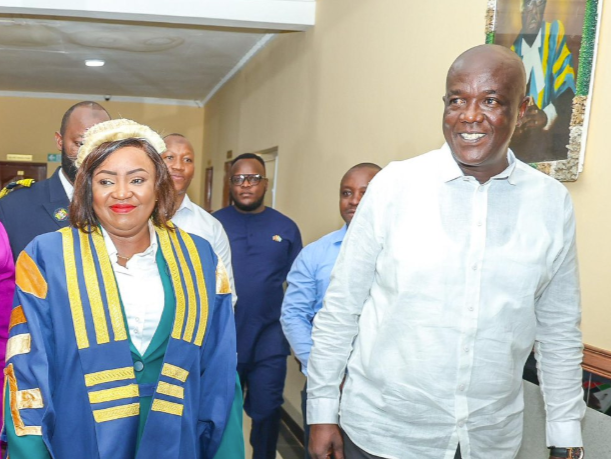In what is being hailed by many as a landmark moment for women’s representation in leadership, Kilifi County on Monday elected Catherine Kenga as the first woman Speaker of the County Assembly.
However, beneath the celebration of this milestone, a growing section of residents and political observers are raising quiet but pointed concerns about the broader governance landscape in the county, particularly the consolidation of power and the perceived erosion of institutional independence.

Kenga’s election, while procedurally valid and commanding an overwhelming majority of 48 out of 51 votes, comes just weeks after the dramatic impeachment of former Speaker Teddy Mwambire, whose removal officially on grounds of incompetence and budgetary interference, has stirred allegations among some residents and civil society actors that the process may have been politically influenced, especially in light of his reported opposition to executive-driven budget initiatives.
At the heart of the concern is the close proximity of the new Speaker to Governor Gideon Mung’aro’s administration.
Prior to her election, Kenga held two influential executive roles, acting County Secretary and CEC for Roads, prompting questions about potential conflicts of interest.
Her swift transition from the executive to the legislative helm, within the same political ecosystem, has fueled perceptions of institutional capture, particularly among residents who allege that familial and political ties are playing an increasingly decisive role in shaping public appointments.
Further complicating the picture are claims increasingly echoed by disaffected factions that the county’s budget processes have become a flashpoint of power struggles.
These insiders argue that the ousting of Mwambire, who had reportedly resisted budgetary maneuverings, paved the way for a more pliant legislative environment.
That the new Speaker is not only a former executive insider but also allegedly related to the governor has amplified concerns over the shrinking space for dissent and checks and balances within the county’s governance structure.
Critics insist that these developments point not merely to political manoeuvring but to a deepening centralization of power that risks undermining the independence of County Assembly operations.
Some have cautioned that the symbolic gains of female political ascendancy should not obscure legitimate fears about transparency, public participation, and separation of powers in county governance.
As the interplay between power blocs grows more contentious, residents are now calling for a closer examination of the relationship between Kilifi’s executive and legislative branches.
Below is a message circulating among concerned residents, reflecting the depth of local frustration and raising serious allegations about power consolidation, familial influence, and the perceived erosion of democratic accountability within Kilifi County.
“Good evening Nyakundi. Please help the residents of Kilifi. Mungaro’s regime will finish us. The lady has been holding two dockets, apparently Mungaro’s relative in the County Government of Kilifi. She has been both the CEC for Roads and the County Secretary. Apparently the Governor had issues with a Speaker by the name Teddy Mwambire about passing of budgets. One of the CECs for Health is his brother. When budgets were being questioned, the Governor facilitated the removal of the Speaker by way of impeachment after he bought the MCAs. Today Monday, she has ensured her relative is the Speaker of the County Assembly of Kilifi. We feel horrible.”
The intersection of political influence, familial affiliations, and institutional power within Kilifi County raises urgent questions about the integrity of governance at a time when the region faces critical fiscal and developmental crossroads.
Catherine Kenga’s ascension to the speaker’s position, while undeniably historic, is already shadowed by growing public skepticism, driven not only by the opaque circumstances surrounding her predecessor’s ouster but also by concerns over perceived executive interference in legislative affairs.
As she assumes office, the demand is no longer for symbolic representation alone but for demonstrable leadership that can restore institutional independence, enforce checks on executive overreach, and reaffirm public trust in the legitimacy of the county assembly.










































